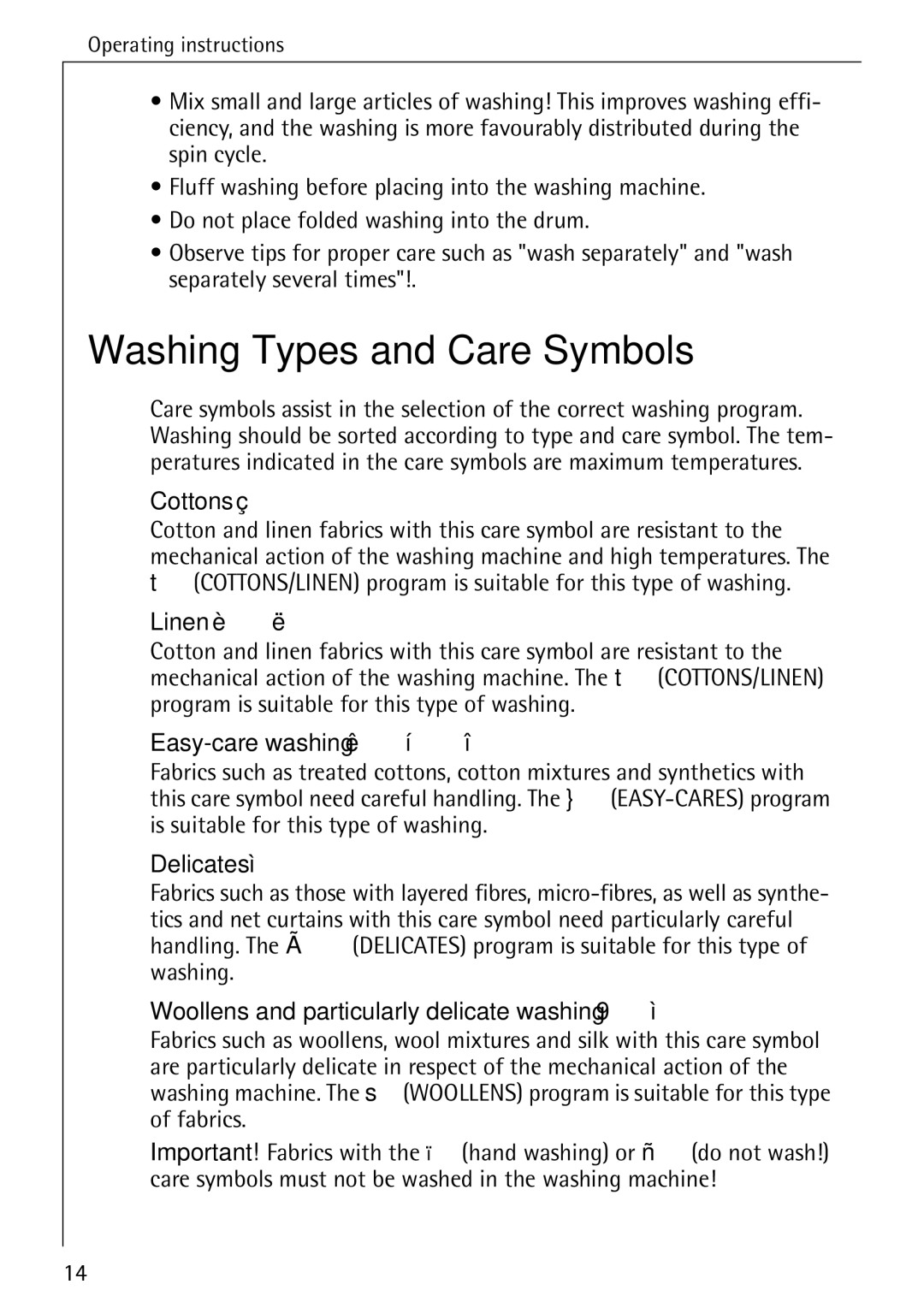
Operating instructions
•Mix small and large articles of washing! This improves washing effi- ciency, and the washing is more favourably distributed during the spin cycle.
•Fluff washing before placing into the washing machine.
•Do not place folded washing into the drum.
•Observe tips for proper care such as "wash separately" and "wash separately several times"!.
Washing Types and Care Symbols
Care symbols assist in the selection of the correct washing program. Washing should be sorted according to type and care symbol. The tem- peratures indicated in the care symbols are maximum temperatures.
Cottons ç
Cotton and linen fabrics with this care symbol are resistant to the mechanical action of the washing machine and high temperatures. The t (COTTONS/LINEN) program is suitable for this type of washing.
Linen è ë
Cotton and linen fabrics with this care symbol are resistant to the mechanical action of the washing machine. The t (COTTONS/LINEN) program is suitable for this type of washing.
Easy-care washing ê í î
Fabrics such as treated cottons, cotton mixtures and synthetics with this care symbol need careful handling. The
Delicates ì
Fabrics such as those with layered fibres,
Woollens and particularly delicate washing 9 ì
Fabrics such as woollens, wool mixtures and silk with this care symbol are particularly delicate in respect of the mechanical action of the washing machine. The s(WOOLLENS) program is suitable for this type of fabrics.
Important! Fabrics with the ï (hand washing) or ñ (do not wash!) care symbols must not be washed in the washing machine!
14
